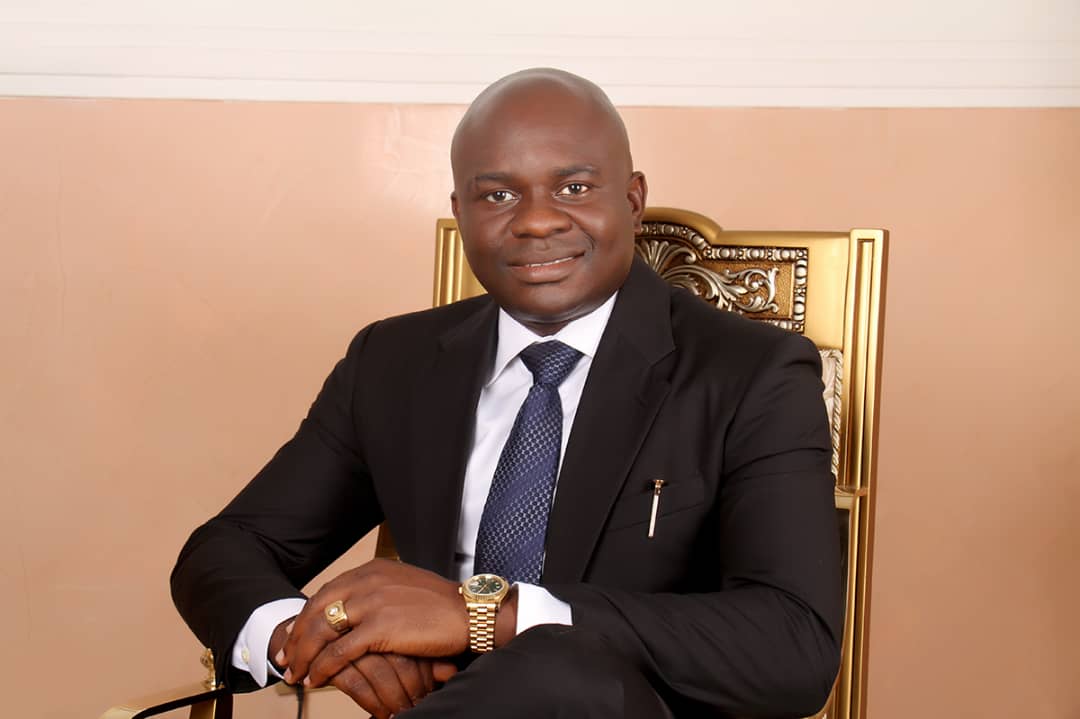Iruoma Okpalaebubu
As the declaration of a State of Emergency in Rivers State by President Bola Tinubu continued to raised serious constitutional questions under the 1999 Constitution of the Federal Republic of Nigeria (as amended), former representative of Bonny/Degema Federal Constituency, Dr Farah Dagogo, has flawed the reason for such action.
Dagogo who was also a former member of the Rivers State House of Assembly said suspension of elected officials in the State is an aberration and a slap on the constitution.
In his statement reacting to the development, Dagogo stated: “Power to Declare a State of Emergency: Section 305 of the 1999 Constitution
Section 305 of the Constitution of the Federal Republic of Nigeria, 1999 (as amended) outlines the conditions under which the President may declare a state of emergency. Specifically: Section 305(1) The President may, by instrument published in the Official Gazette issue a proclamation of a state of emergency in the Federation or any part thereof Section 305(3) states that the President may only declare a state of emergency in a state if: “The Governor of the state, with a resolution supported by two-thirds majority of the House of Assembly, requests the President to do so; or
There is actual breakdown of public order and public safety requiring extraordinary measures; or there is a clear and present danger of an actual breakdown of public order and public safety in the Federation or any part thereof; or
There is an occurrence or imminent danger of invasion, war, or insurrection; or there is a natural disaster or public health emergency; There is any other danger threatening the existence of the Federation.”
He said since President Tinubu admits that the Governor and Deputy Governor did not request the proclamation (as required under Section 305(5), the legal basis for the declaration rests on whether public order and public safety have truly broken down, justifying the invocation of emergency powers.
He said the most controversial aspects of the declaration is the suspension of the Governor, Deputy Governor, and State House of Assembly Under the 1999 Constitution.
Dagogo argued that the only legal way to remove a Governor or Deputy Governor is through impeachment by the State House of Assembly under Section 188.
He noted that the Constitution does not grant the President the power to suspend or remove a Governor or Deputy Governor outside the impeachment process or a valid resignation.
“Section 11(4) and (5) states that only the National Assembly can take over legislative functions of a State House of Assembly in cases where it cannot function. It does not allow for the suspension of elected lawmakers.
“Given these constitutional provisions, President Tinubu’s suspension of elected officials is unconstitutional, as there is no provision in the 1999 Constitution granting such powers. Even during a state of emergency, the Governor and Deputy Governor remain in office, unless removed in accordance with constitutional procedures.
According to the former lawmakers, “The appointment of Vice Admiral Ibokette Ibas (Rtd) as the Administrator to govern Rivers State raises another constitutional issue. The 1999 Constitution does not recognize the office of an “Administrator” in place of an elected Governor, The Constitution only provides for:
“A Governor elected by the people (Section 176(1)). A Deputy Governor elected alongside the Governor (Section 186)
“The only situation where an unelected official can assume control of a state is under military rule, which is not applicable under a democratic system governed by the 1999 Constitution.”
On role of the National Assembly in Approving the State of Emergency
Under Section 305(2) and (6), he said “the President must transmit the emergency proclamation to the National Assembly for approval within two days. If the National Assembly does not approve it within 10 days, the proclamation ceases to have effect.
“Thus, for this declaration to be valid, it must receive the backing of the National Assembly. If the National Assembly does not approve it, the state of emergency becomes null and void.”
He said “Given the constitutional breaches in the proclamation, there are strong grounds for legal challenges in court. The Supreme Court’s pronouncement in A.G. Federation v. A.G. Lagos State (2013) LPELR-20974(SC) reaffirms the principle that the President must act within constitutional limits, even in extraordinary situations.”
Dagogo further stated that “The affected officials Governor Fubara, his Deputy, and the State Assembly members can challenge the suspension in court”, arguing that: “The Constitution does not empower the President to suspend elected officials. The appointment of an unelected Administrator violates democratic principles. The National Assembly must approve the state of emergency before it takes effect”.
He questioned “Is the State of Emergency Constitutional? While the President has the power to declare a State of Emergency under Section 305, the suspension of elected officials and appointment of an Administrator exceed constitutional limits.
Any action outside the scope of the 1999 Constitution is illegal and could be overturned by the courts.”

